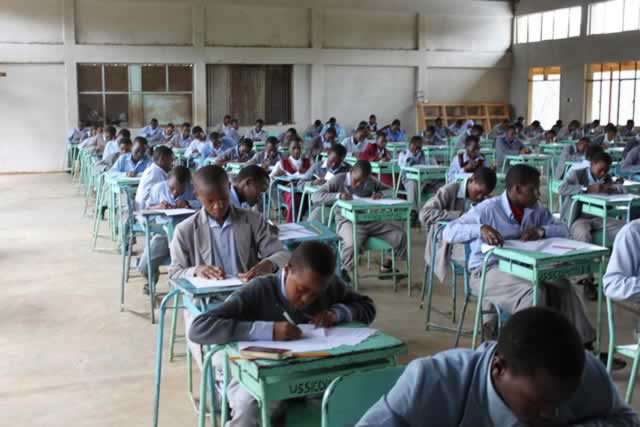6 ways Govt can stop exam leaks

Neera Sonotra —
The leaking of question papers in any examination, is not new. It has become a common phenomenon in all public examinations, that questions are leaked prior to the exam. How do papers get leaked? In most cases of delivery of question papers, there are a large number of people involved – right from those in the printing press, those in logistics of the delivery, officials in treasury offices to colleges where the papers are stored.
The issue merits serious concern and the full attention of the government. So what can and should the government do to stop or minimise such malpractices?
1. Strict action against perpetrators
A strong drive against forces and syndicates which run these rackets must be initiated and exemplary punishment should be given to the people involved. Coaching centres, educational institutes must be thoroughly scrutinised by the Anti-Corruption Commission. The ministry should ensure that the officials who are involved in forwarding, printing and preserving the question papers are mandatorily liable and severely penalised for any leaks of the question paper, to deter them from harbouring such speculations.
2. Greater vigilance over exam papers.
SC Sharma, Vice-Chancellor of Tumkur University, suggested the making of multiple sets of papers to ensure no leakages. “It would be impossible for anyone but the Board of Examinations to know which set goes to which college,” he said. Among other steps to boost security, Mr Sharma said the papers should be under the strict vigil of Home Guard, clustering colleges in one common guarded centre and not disclosing the location of the outsourced printing press.
Strong monitoring committees need to be formed in education boards and printing press. The printing should take place in a secure room at the test centres or regional hubs under surveillance cameras and senior observers so that the security and confidentiality of the question paper are maintained right from creation.
3. Raising awareness.
Civil society, academics and media can play an important role in raising social awareness against this menace. Teachers, guardians, and educators must instil the right moral values in students to discourage them from seeking out leaked papers. They must be taught to value their education and not just that slip of paper they call a degree.
4. Adopting technology
The final and overall solution perhaps lies in adopting technology to conduct exams and in providing tighter security to the entire process. While not many view technology as the ultimate solution, it is increasingly emerging as an alternative to prevent such incidents and make the process of conducting exams more robust.
The “just-in-time” paper method involves the creation of a bank of questions or question papers, hosting them in a secure data centre, and delivering them just in time to the examination centres electronically in encrypted form. The decryption rules are made available just in time to senior administrators at the test.
5. Online testing
Another alternative would be to conduct online tests. Everywhere in the world, online tests are conducted for the majority of examinations, but we have so far failed to embrace the technology for our entrance examinations. Most students consider computer-based tests more secure. Online tests process faster and give error-free results and are free from leaks. CAT, the most prestigious examination for MBA, have been successfully conducted in online mode from the year 2009.
6. Random computerised selection of questions.
A new-age option forwarded by a writer in the Department of Computer Science, International Islamic University Malaysia (IIUM), Malaysia is worth considering. A central database of a pool of varied type of questions or question bank should be prepared for a particular education board or for all education boards to have a large number of possible questions for a particular subject.
The specific software can be developed to generate the question paper electronically by randomly selecting questions from the pool of questions stored in the database. After generation of the paper set, the approver or the examination committee would approve it, and that set of questions would appear in front of the candidate in the exam hall itself.
With a little bit of creativity and innovation, the whole structure of examining students can be revamped so that the processes become immunised against all kinds of malpractices, so that fair and honest assessment of students can take place. – examswatch.com









Comments